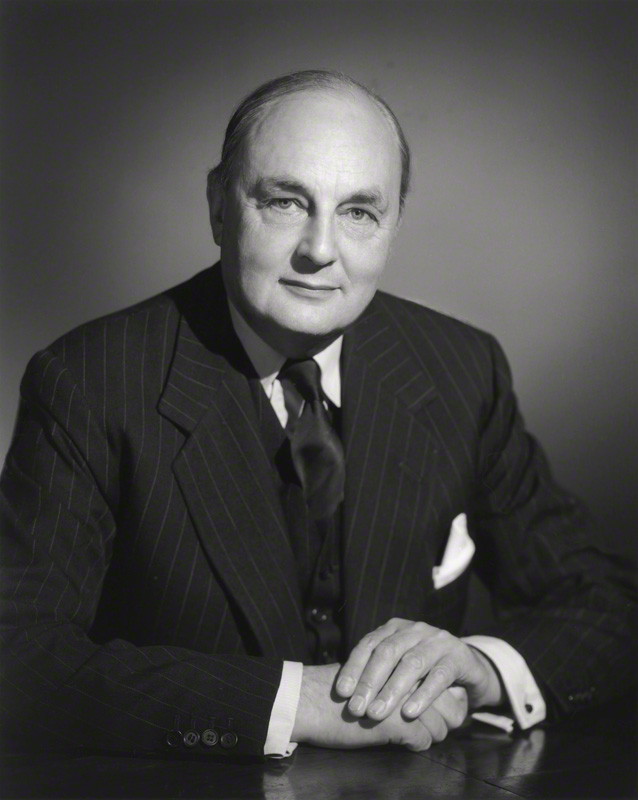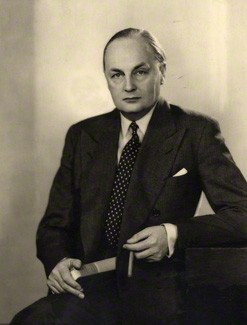<Back to Index>
- 3rd Secretary General of the League of Nations Seán Lester, 1888
- Acting Secretary General of the United Nations Hubert Miles Gladwyn Jebb, 1st Baron Gladwyn, 1900
PAGE SPONSOR

Seán Lester (28 September 1888, Carrickfergus, County Antrim, Ireland - 13 June 1959, Galway, Ireland) was an Irish diplomat and the last Secretary General of the League of Nations, from 31 August 1940 to 18 April 1946.
He was born in County Antrim, the son of a Protestant grocer. Despite the fact that the town of Carrickfergus, where he was born and raised, was strongly Unionist, he joined the Gaelic League as a youth, and was won over to the cause of Irish nationalism. As a young man he joined the Irish Republican Brotherhood. He was working as a journalist for the North Down Herald and a number of other northern papers, before moving to Dublin, where he found a job with the Freeman's Journal. There, by 1919, he had risen to news editor.
After the War of Independence, a number of his friends
joined the new government of the Irish Free State. Lester
was offered, and accepted, a position as Director of
Publicity. He married Elizabeth Ruth Tyrrell in 1920, by
whom he had three daughters.
In 1923 he joined Ireland's Department of External Affairs. He was sent to Geneva in 1929 to replace Michael MacWhite as Ireland's Permanent Delegate to the League of Nations. In 1930 he succeeded in organizing Ireland's election to the Council (or executive body) of the League of Nations for a three year term. Lester often represented Ireland at Council meetings, standing in for the Minister for External Affairs. During this time he became increasingly involved in the work of the League, particularly in its attempts to bring a resolution to two wars in South America. This work brought him to the attention of the League Secretariat and began his transformation from national to international civil servant.
When Peru and Colombia disputed over a town in the headwaters of the Amazon, Lester presided over the committee which found an equitable solution. He also presided over the less successful committee when Bolivia and Paraguay went to war over the Gran Chaco. In 1933, Lester was seconded to the League's Secretariat and sent to Danzig (now Gdańsk, Poland), as the League of Nations' High Commissioner. The Free City of Danzig was the scene of an emerging international crisis between Nazi Germany and the international community over the issue of the Polish Corridor and the Free City's relationship with the Third Reich. During this period Lester repeatedly protested to the German government against its persecution and discrimination of the Jews. For this reason he was boycotted by both the representatives of the German Reich and the representatives of the Nazi Party in Danzig.
Lester returned to Geneva in 1937 to become Deputy Secretary General of the League of Nations. In 1940 he became Secretary General of the body (he became the League's leader a year after the beginning of World War II which had rendered the League impotent). The League had only 100 employees, including guards and janitors, of its original 700. Lester remained in Geneva throughout the war, and kept the League's technical and humanitarian programs in limited operation for the duration of the war. In 1946 he oversaw the League's closure, and turned over the League's assets and functions to the newly established United Nations.
Despite rumors that he would be prepared to stand for
election as President of Ireland, Lester sought no
permanent office and retired to Recess, County Galway in
the west of Ireland, where he died. In its obituary, The
Times described Lester as an “international
conciliator and courageous friend of refugees”. He was
given the Woodrow Wilson Award
in 1945 and a doctorate of the National University of
Ireland in 1948.


Hubert Miles Gladwyn Jebb, 1st Baron Gladwyn, known as Gladwyn Jebb (25 April 1900 - 24 October 1996), was a prominent British civil servant, diplomat and politician as well as the Acting Secretary General of the United Nations.
The son of Sydney Jebb, of Firbeck Hall, Yorkshire, Jebb was educated at Eton College, then Magdalen College, Oxford, gaining a first in History. In 1929 he married Cynthia Noble, with whom he had one son and two daughters, Miles, Vanessa, married to the historian Hugh Thomas, and Stella, married to the scientist Joel de Rosnay.
Jebb entered the Diplomatic Service in 1924, served in Tehran, where he became known to Harold Nicolson and to Vita Sackville - West and in Rome, as well as at the Foreign Office in London where, among other positions, he served as the Private Secretary to the Head of the Diplomatic Service.
In August 1940, Jebb was appointed to the Ministry of Economic Warfare with temporary rank of Assistant Under - Secretary. In 1942 he was appointed Head of the Reconstruction Department and in 1943 was made a Counsellor within the Foreign Office. In this capacity he attended numerous international conferences, including those at Tehran, Yalta and Potsdam.
After World War II, he served as Executive Secretary of the Preparatory Commission of the United Nations in August 1945, being appointed Acting United Nations Secretary General from October 1945 to February 1946 until the appointment of the first Secretary General Trygve Lie. He remains the only UN Secretary General or Acting Secretary General to come from a permanent member state of the United Nations Security Council.
Returning to London, Jebb served as Deputy to the Foreign Secretary Ernest Bevin at the Conference of Foreign Ministers before serving as the Foreign Office's United Nations Adviser (1946-47). He represented the United Kingdom at the Brussels Treaty Permanent Commission with personal rank of ambassador. He became the United Kingdom's Ambassador to the United Nations from 1950 to 1954 and to Paris from 1954 - 1960. In the latter role he was angered that secret negotiations between the British, French and Israelis in advance of the Suez invasion in 1956 took place at Sèvres without his knowledge, and, in certain respects, he was sidelined by Prime Minister Harold Macmillan at the Paris "big power" summit in 1960. His rather "grand" manner caused Foreign Secretary Selwyn Lloyd to coin the epigram, "You're a deb, Sir Gladwyn Jebb".
He was knighted in 1949. In 1960 Jebb was made a hereditary peer and as Baron Gladwyn became involved in politics as a member of the Liberal Party. He was Deputy Leader of the Liberals in the House of Lords 1965 - 1988 and spokesman on foreign affairs and defense. An ardent European, he served as a Member of the European Parliament from 1973 to 1976, where he was also the Vice President of the Parliament's Political Committee. He unsuccessfully contested the Suffolk seat in the European Parliament in 1979.
When asked why he had joined the Liberal party in the early 1960s, he replied that the Liberals were a party without a general and that he was a general without a party. Like many Liberals, he passionately believed that education was the key to social reform.
He became a good cook and for a long time was chairman of the British government's wine committee. A good shot, he never ceased to be interested by rural pursuits. He was a friend of Cyril Connolly and of Nancy Mitford.
He died in 1996, and is buried at St. Andrew's, Bramfield in the county of Suffolk.
Jebb's wife, Cynthia, Lady Gladwyn,
was a noted diarist of their times in Paris and a hostess
of Liberal and London politics. She was the great - grand
daughter of Isambard Kingdom Brunel.
Publications by Baron Gladwyn include:
- Is Tension Necessary?, 1959;
- Peaceful Co-existence, 1962;
- The European Idea, 1966;
- Half-way to 1984, 1967;
- De Gaulle's Europe, or, Why the General says No, 1969;
- Europe after de Gaulle, 1970;
- The Memoirs of Lord Gladwyn, 1972.
The papers of 1st Lord Gladwyn were deposited at Churchill Archives Centre at the University of Cambridge by his son, 2nd Lord Gladwyn, between 1998 and 2000.